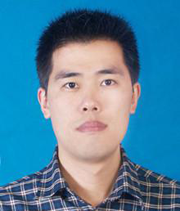
Yong Zheng, PH.D
E-mail Address: zhengyong@whu.edu.cn
Office Address: 185# DongHu Road, Wuhan, Hubei, 430071
Position(s): lecturer
Affiliation(s):Department of Anatomy and Embryology
Research interests / Specialties:Senescence and tumorigenesis
Education and Training
B.S., 2001-2007 Taishan medical college, China
Ph.D., 2007-2012 Wuhan University College of Medicine , China
Post-doctoral training, 2012-2014 Wuhan University College of Life Sciences, China
Research Description
Our research aims at understanding the molecular mechanisms underlying tumorigenesis related to the senescence of adult stem cells.
We have indetified the key stages during the spontaneous of rat mesenchymal stem cells. Our privious study identified, for the first time, an Ezh2/H3K27me-independent and H3K9me enhanced aberrant DNA methylation of the p16 gene, which might be an epigenetic signature for MSC spontaneous transformation.
We have also begun to explore the mechanisms that bring the H3K9me and DNA hypermethylation to the p16 gene.
Publication list
1.Zheng Y, Hu C, Zhuo R, Lei Y, Han N, He L. Inhibition of autophagy alleviates the senescent state of rat mesenchymal stem cells during long-term culture. Mol Med Rep 2014.10(6):3003-3008.
2.He L, Zheng Y, Wan Y, Song J. A shorter telomere is the key factor in preventing cultured human mesenchymal stem cells from senescence escape. Histochem Cell Biol. 2014.142(3): 257-267
3.Han N, Zheng Y, Li R, Li X, Zhou M, Niu Y, Zhang Q. β-catenin enhances odontoblastic differentiation of dental pulp cells through activation of Runx2. PLoS One 2014.9(2):e88890.
4.Zheng Y, He L, Wan Y, Song J. H3K9me-enhanced DNA hypermethylation of the p16INK4a gene: an epigenetic signature for spontaneous transformation of rat mesenchymal stem cells. Stem Cells Dev. 2013.22(2): 256-267.
5.Zhu C, Zhang L, Zheng Y, Xu J, Song J, Rolfe BE, Campbell JH. Effects of estrogen on stress-induced premature senescence of vascular smooth muscle cells: a novel mechanism for the "time window theory" of menopausal hormone therapy. Atherosclerosis. 2011. 215(2):294-300.


